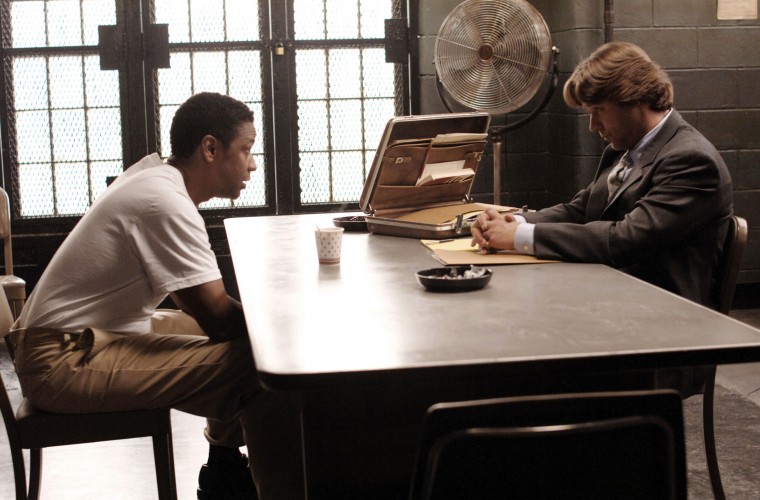‘American Gangster’ set to join mafia elite
Denzel Washington, left, and Russell Crowe team up in “American Gangster.”:Photo Courtesy: Handout/MCT
November 6, 2007
Working with a duo of Oscar Award winners and a $100 million budget, “American Gangster” was destined to join the pool of timeless gangster classics such as “Scarface,” “Goodfellas,” and “The Godfather.”
Based on a true story, “American Gangster” is set in the ghettos of Harlem during the 1970s and chronicles the rise of Frank Lucas, a cutthroat drug mogul who meets the challenges of competing drug dealers and dirty cops.
Starting out as an unknown driver for drug kingpin Ellsworth “Bumpy” Johnson, Lucas picks up where his boss left off after Johnson’s sudden heart attack left the business up for grabs. Armed with determination and pride, Lucas sets out to dominate the competition by any means – whether it calls for selling a better product or by the gun.
Lucas takes his first step toward success by negotiating the import of pure heroin straight from the source in Thailand. This foreign partnership gave him better quality product than the competitors at a cheaper price by eliminating middle-man fees. With the perfect product at hand, Lucas assembled a trusty workforce run by close family and made his “blue magic” heroin the most popular drug in the streets.
With success looming for Lucas, Russell Crowe enters as Richie Roberts, who counters Lucas as an honest, persistent cop, determined to catch the biggest dealers of the area. Roberts is aware of the new product flooding the streets, but criminal resistance and police corruption stand in his way.
Some may say that showing the story from the criminal’s perspective is what makes mafia-gangster movies so unique and provocative. Throughout “American Gangster,” Washington owns the screen as the bad guy we grow to love and not the villain. The audience has no choice but to feel sympathy for the devout churchgoer who buys his mother a house after just a glimpse of wealth.
The character of Frank Lucas works, but some may say the roll lacks the distinctive fire like Tony Montana in “Scarface.” For example, Montana’s memorable lines like “Say hello to my little friend” or “Say goodnight to the bad guy” have been imitated by many and even put on t-shirts every year after the movie released, but I don’t see any of Lucas’ lines gaining as much recognition.
Maybe the roll was tailored too much around the original Frank Lucas in order to serve him justice, especially since he is still alive today and out of prison. Not defaming his name is one thing, but I feel the roll needed a little embellishment to make it Hollywood quality.
Crowe played the good cop roll well, but I also feel the roll needed more fire in the character. Crowe stood out as the macho cop in “L.A. Confidential,” and the calm, cool, collected cop in “American Gangster” just isn’t as entertaining. The audience wants to see criminals and cops clashing together, but Crowe and Lucas don’t have the epic face-off that we hope for.
In “American Gangster,” Crowe and director Ridley Scott are reunited after they famously worked together in the breakthrough film “Gladiator.” This time, Scott brings dark, muted scenery to emphasize the retro, slum environment of 1970s Harlem.
Cuba Gooding Jr. and Armand Assante are among the casted actors. Also featured in the film are Common, T.I. and RZA, who are all popular hip-hop artists of today.
Overall, “American Gangster” is a solid crime-laden, mafia-type film, but it also doesn’t meet big expectations. The box office should benefit from the big-name cast, but the longevity of the film as a classic is questionable.
“American Gangster” opens today.
Martin Wood can be reached at [email protected]





























































































































